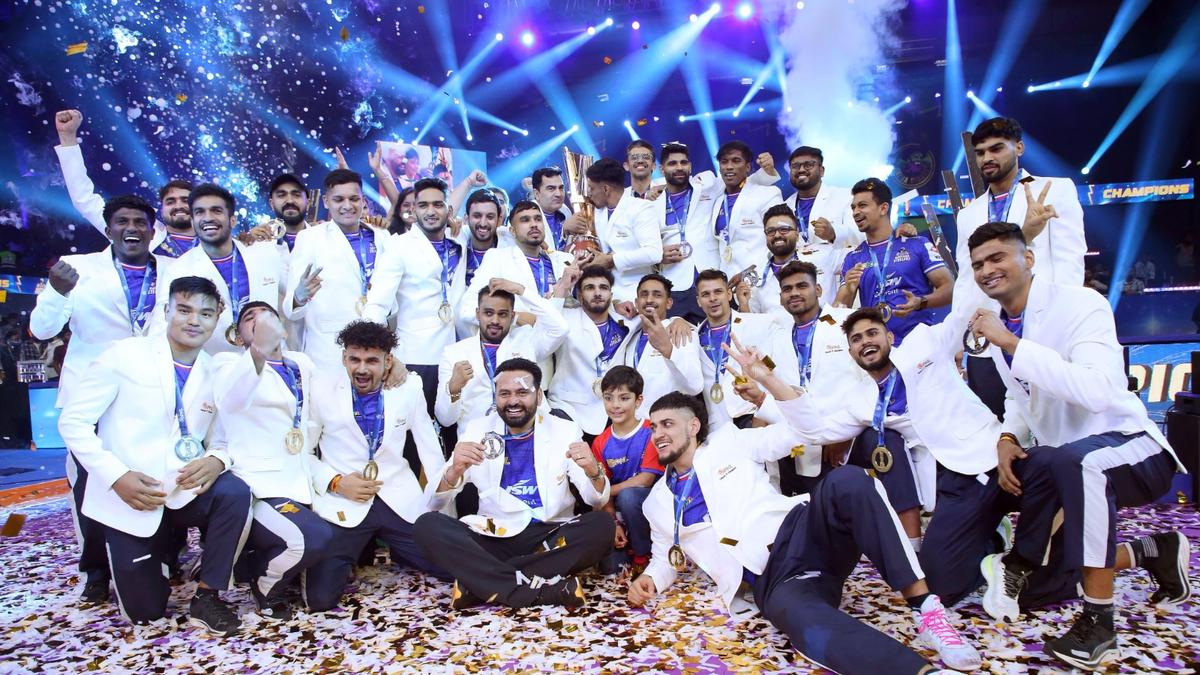 |
|
The Pro Kabaddi League (PKL) Season 11 culminated in a thrilling final, with the Haryana Steelers emerging victorious against the Patna Pirates, securing their first-ever PKL title. This win marks a significant achievement for the Steelers, who had previously lost the final in Season 10. Their success is a testament to their consistent improvement and the effectiveness of their youth development program, the New Young Programme (NYP). The NYP, coupled with the support of the Inspire Institute of Sport (IIS), has nurtured homegrown talent, enabling the Steelers to cultivate a cohesive and highly skilled team. Key players like captain Jaideep Dahiya, who joined the NYP four years ago, exemplify the success of this program. The Steelers' victory also underscores the growing competitiveness within the PKL, a league that increasingly emphasizes the development of young players.
The Patna Pirates, despite their three previous PKL titles, fell short this season. Their approach, under coach Narender Redhu, focused on nurturing scouted talent rather than acquiring established stars. This strategy resulted in a strong performance, reaching the final, largely due to the impressive contributions of their young raiding duo, Devank Dalal and Ayan Lohchab. Dalal's achievement of over 300 raid points in a single season is a notable feat, highlighting the emerging talent within the league. However, Redhu's immediate dismissal following the loss underscores the high-stakes and unforgiving nature of franchise leagues, where results often dictate coaching longevity. The contrast between the Steelers' long-term player development strategy and the Pirates' reliance on young, unproven talent showcases the diverse approaches within the PKL.
The overall competitiveness of Season 11 was unprecedented. The close proximity of teams in the league standings, with minimal points separating several contenders, created an electrifying atmosphere. The significant increase in drawn matches and last-minute finishes demonstrates the heightened parity and excitement throughout the season. This intensified competition is partly attributed to the league's decision to shift from a 12-city caravan to a three-city model, reducing travel time and player fatigue. This change allowed teams to focus more on strategy and recovery, ultimately contributing to a more intense and evenly matched competition. However, the season also revealed the challenges faced by several teams. The Bengaluru Bulls, once league leaders, struggled significantly, winning only two matches out of 22 and finishing at the bottom of the table. Similarly, the Bengaluru Warriorz and Gujarat Giants also had disappointing seasons. In contrast, the Telugu Titans showcased resilience, despite losing their star raider, pushing towards playoff qualification before ultimately falling short. The defending champions, Puneri Paltan, experienced a significant decline due to injuries and leadership issues, ultimately failing to make the playoffs.
The PKL's international ambitions were also highlighted during the season. The 'PKL Melbourne Raid' exhibition event in Australia demonstrated the league's desire to expand globally. However, the limited participation of international players, predominantly from Iran, and the absence of some prominent international stars underscore the challenges in attracting wider international participation. This situation is further complicated by the ongoing ban on India's participation in international Kabaddi tournaments due to governance issues within the Amateur Kabaddi Federation of India (AKFI). This conflict between the AKFI and the International Kabaddi Federation (IKF) casts a shadow on the PKL's broader global aspirations. The future success of the PKL in expanding internationally hinges on resolving these governance issues and fostering stronger ties with international Kabaddi organizations. The long-term health and global reach of the sport depend heavily on resolving this dispute and creating a more inclusive and internationally collaborative Kabaddi environment. The 11th season of PKL showcases both remarkable achievements and significant challenges, leaving a complex legacy for the future of the league.
Source: Haryana Steelers claims maiden title, but PKL’s real winner is competitiveness
